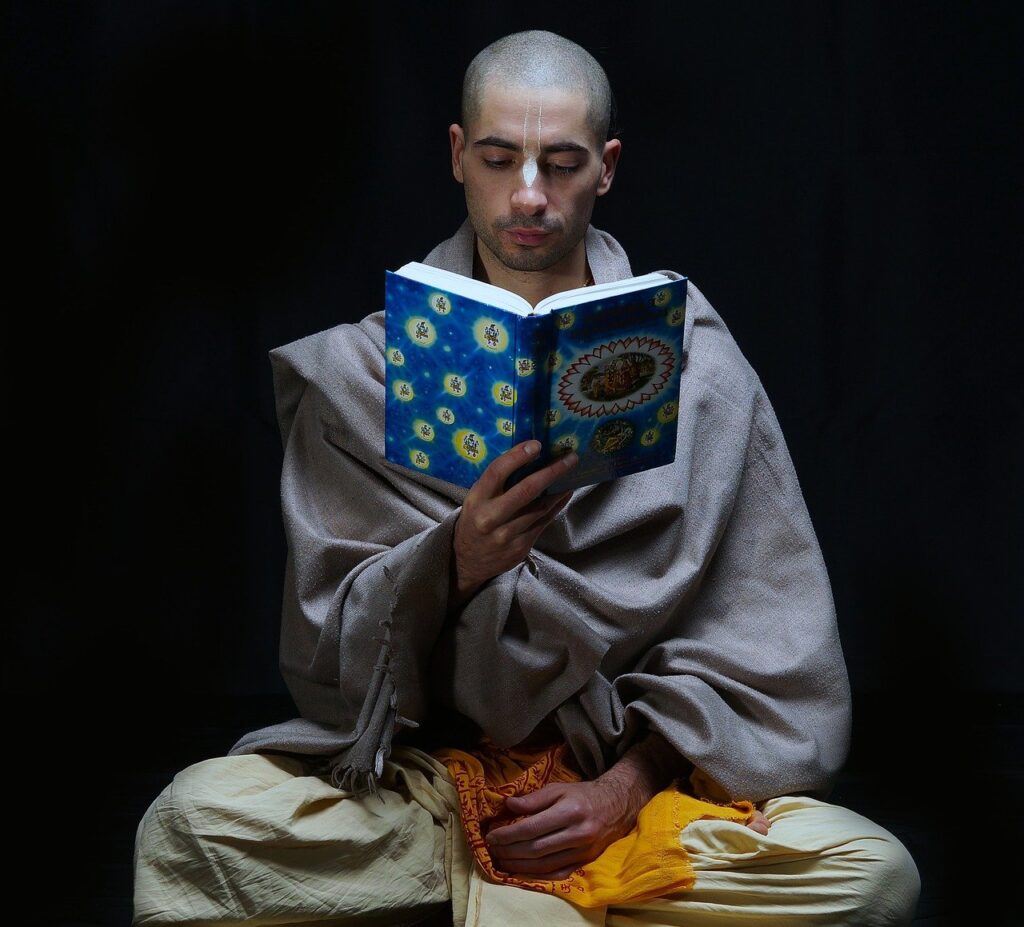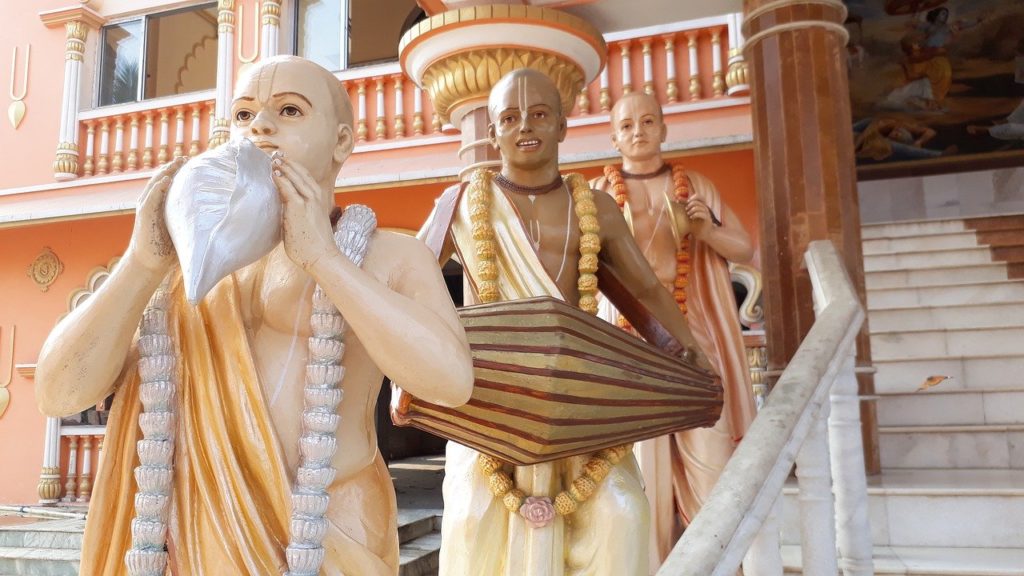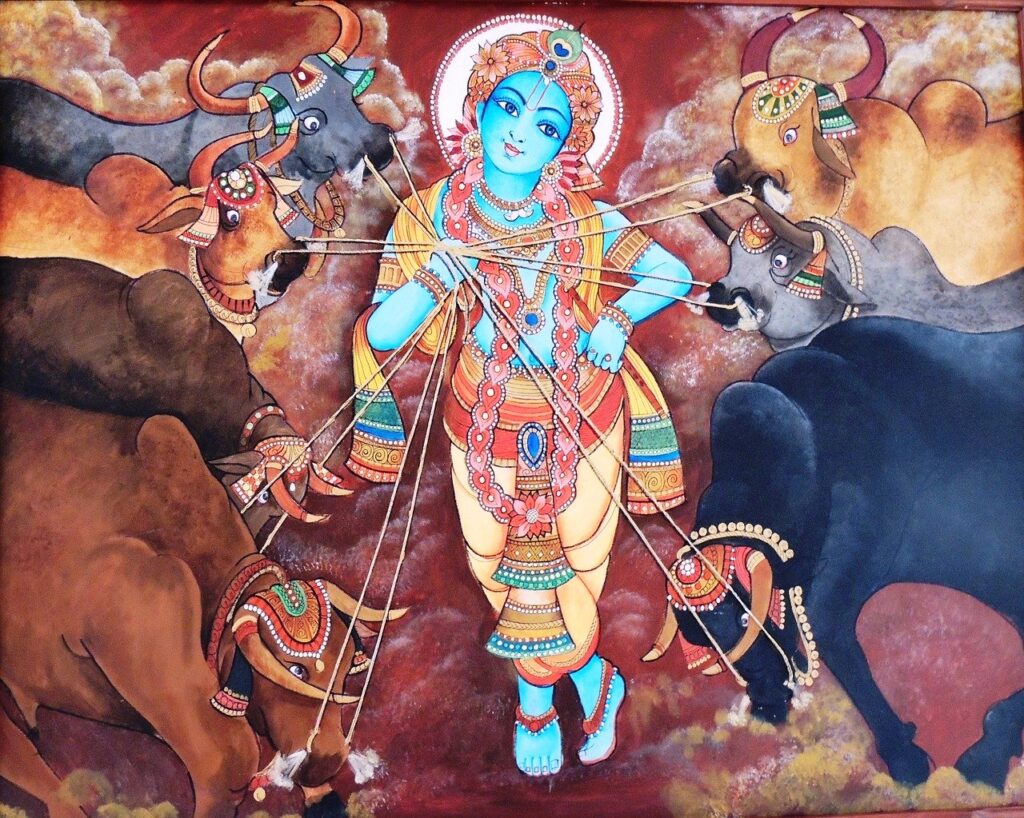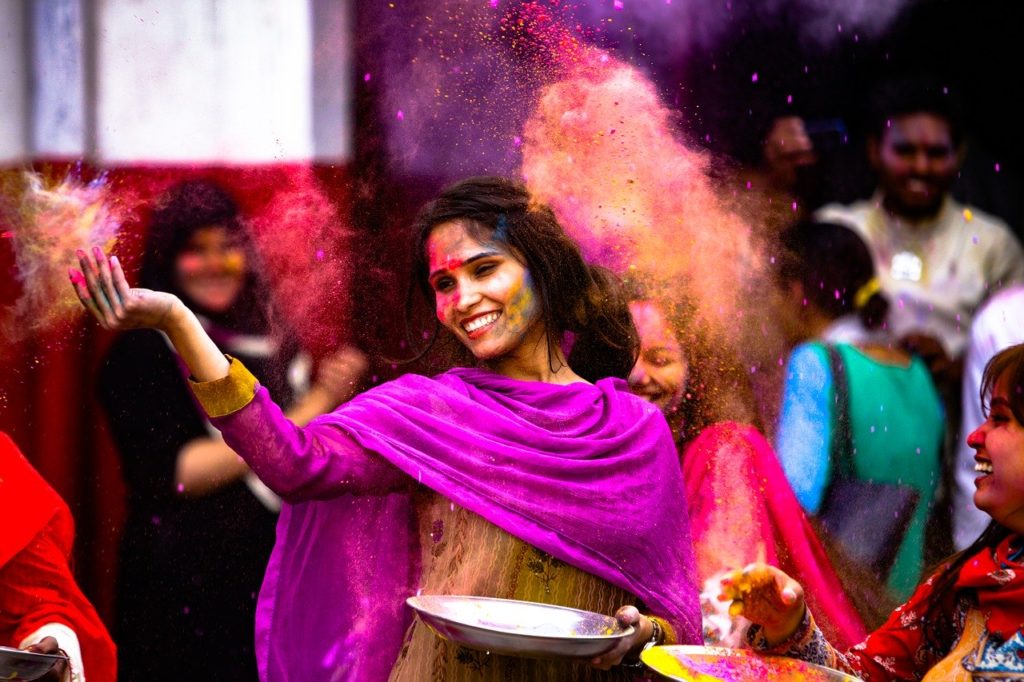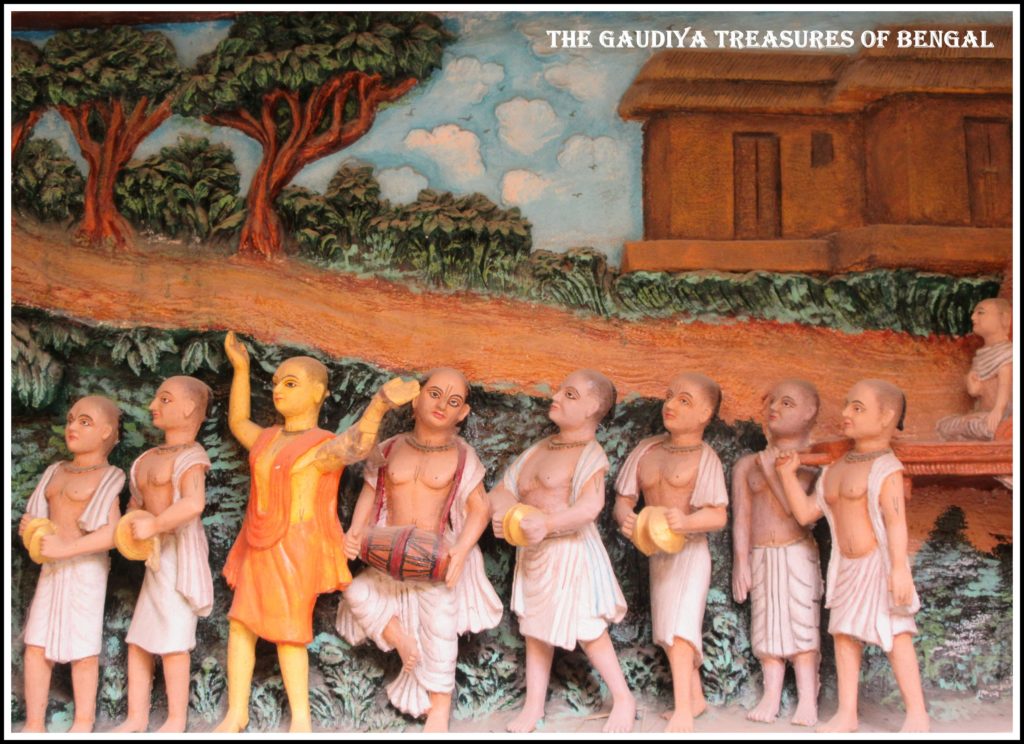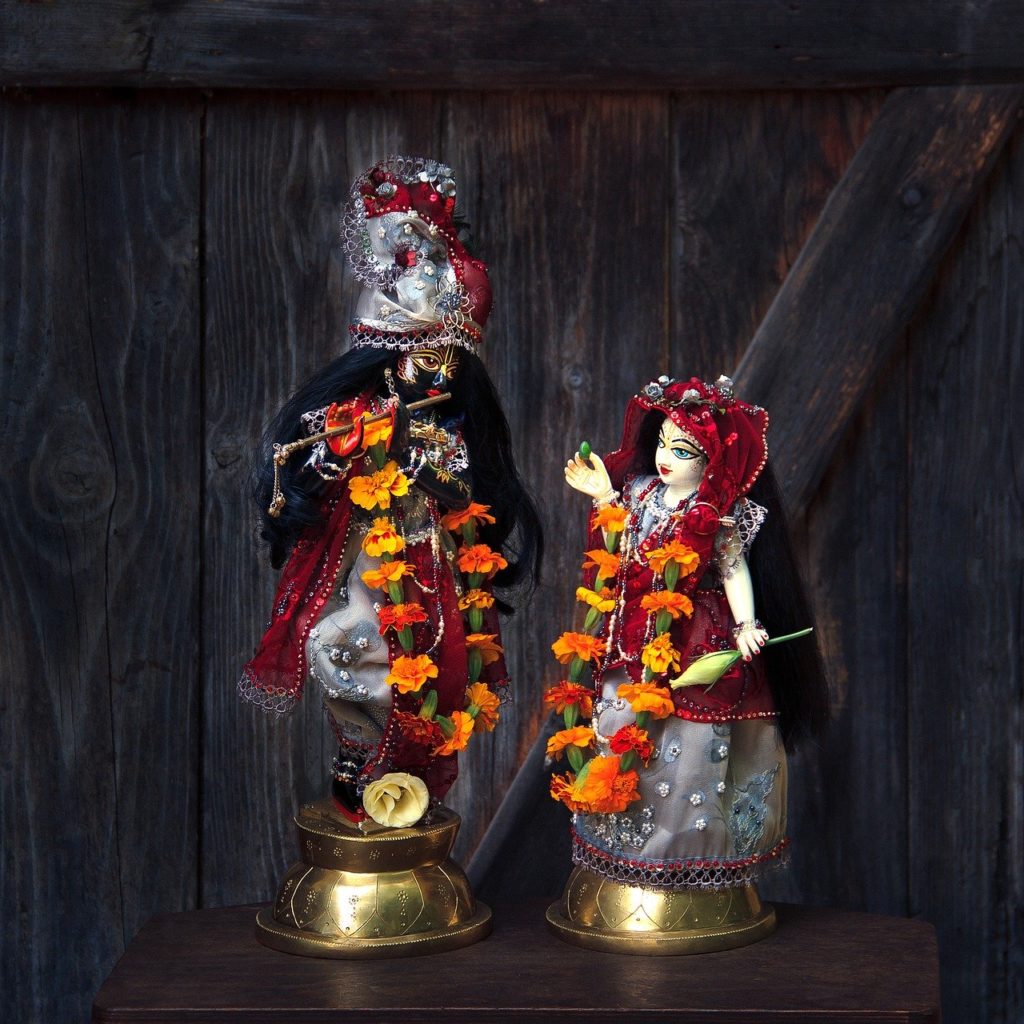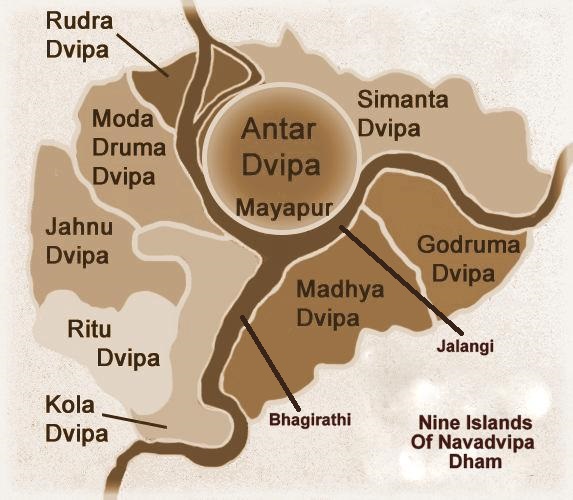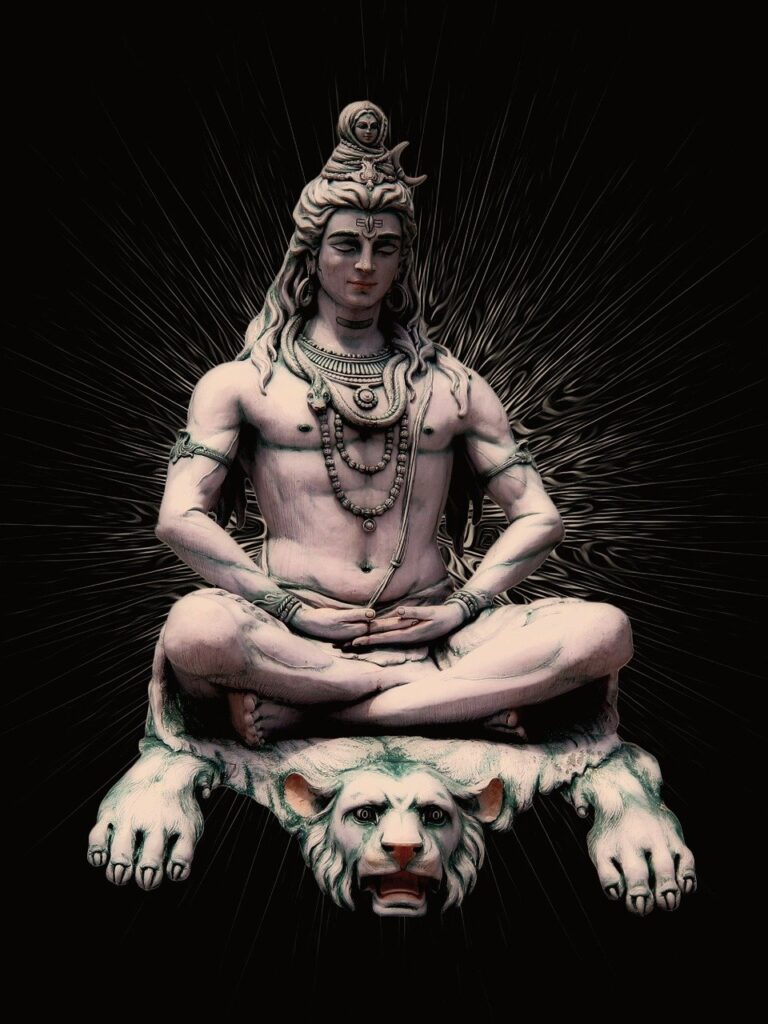
‘Sri Krishna Chaitanya Carita Maha Kavya’ written by Murari Gupta cites the below captivating Shiva Ashtakam (prayers offered unto Lord Shiva) composed by Sri Chaitanya Mahaprabhu and recited at a place called Ekamraka (situated near Bhubaneswar). Murari Gupta describes that Lord Gauranga walking like a ferocious lion eventually reached the village of Ekamraka. Gaura’s heart ran wild to meet with Shiva (the great Vaishnava). Great longings filled His heart. He became wild with ecstatic loving emotions. Seeing the flag fluttering on top of the temple, Lord Gaurahari offered His obeisances. He got up and continued walking until he was able to enter the temple of Shiva. Being overwhelmed with ecstasy, Mahaprabhu recited the below prayers again and again.
(1)
namo namas te tri-dasesvaraya
bhutadi nathaya mrdaya nityam
ganga tarangotthita bala chandra
cudaya gauri nayanotsavaya
(2)
su-tapta camikara chandra nila padma
pravalambuda kanti vastraih
su-ntya rangeta vara pradaya
kaivalya nathaya va dhvajaya
(3)
sudhasu suryagni vilocanena
tamo bhide te jagatah sivaya
sahasra subhrasu sahasra rasmi
sahasra sanjittvara tejase ‘stu
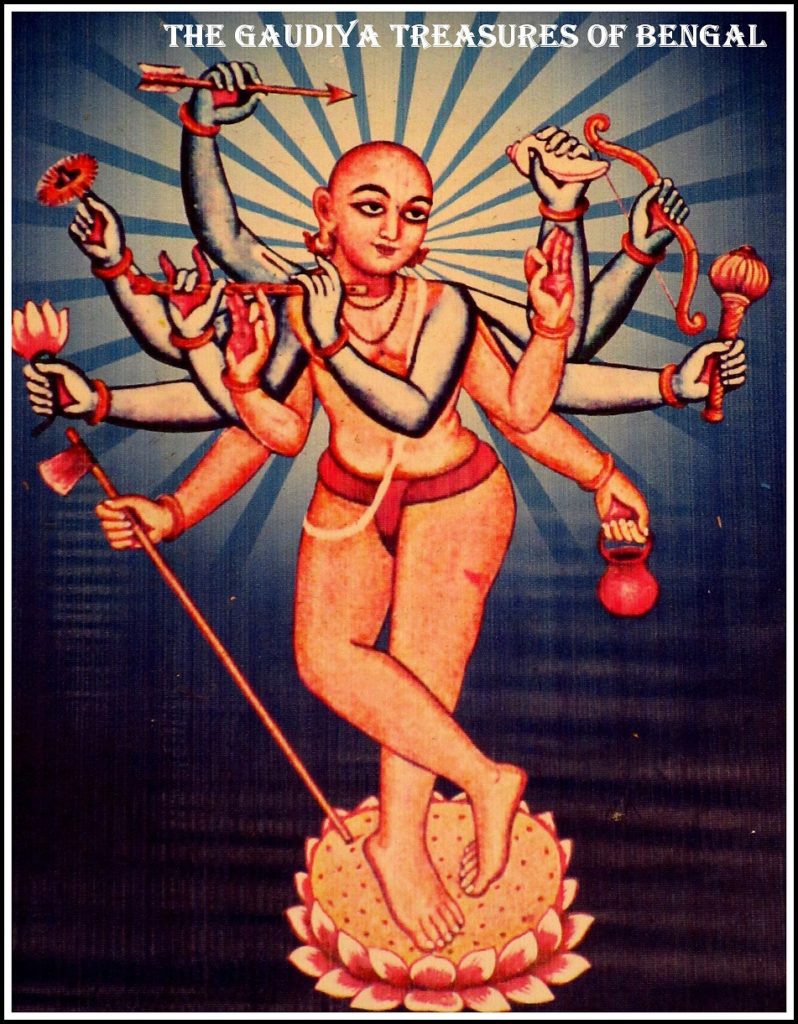
(4)
nagesa ratnojjvala vigrahaya
sarddula carmasukha divya tejase
sahasra patropari samsthitaya
varangadamukta bhuja dvayaya
(5)
su nupuraranjita pada padma
karat sudha bhtya sukha pradaya
vicitra ratnaugha vibhuitaya
premanam evadya harau vidhehi
(6)
sri rama govinda mukunda saure
sri krsna narayana vasudeva
ity adi namamta pana matta
bhngadhipayakhila duhkha hantre
(7)
sri naradadyaih satata sugopya
jijnasitayasu vara pradaya
tebhyo harer bhakti sukha pradaya
sivaya sarvva gurave namah
(8)
sri gauri-netrotsava mangalaya
tat prana nathaya rasa pradaya
sada samutkantha govinda lila
gana pravinaya namo stu tubhyam
Translation
(1)
I forever offer my obesisances unto you, the controller of the thirty primal demigods; unto you, who is the original father of created beings and who is gracious, and from whose head, which is crested by the sickle moon, arises the waves of Ganga. I offer my obeisances unto you, who is a festival for the eyes of Gauri, the fair goddess.
(2)
I offer my obeisances unto you, who resembles a moon of molten gold hue, who is dressed in garments glowing like fresh blue lotuses or like radiant rainclouds; (I offer my obeisances) unto you who bestows the most desirable boons upon your devotees through your delightful dancing; (I offer my obeisances) unto you who are the Lord of the impersonalists and whose flag bears the image of the bull.
(3)
I offer my obeisances unto you, who dispels darkness with your three eyes – the moon, the sun, and the fire; (I offer my obeisances) unto you, who generates auspiciousness for all the living entities of the universe and you, whose potency easily defeats that of thousands of moons and suns.

(4)
I offer my obeisances unto you, whose form is brilliantly illuminated by the jewels of Ananta Deva, the king of snakes. I offer my obeisances unto you, who possesses divine potencies and are clothed in a tiger skin, who sits upon a lotus of thousand petals, and whose two arms are adorned by radiant bangles.
(5)
I offer my obeisances unto you, who carries happiness unto your servitors as you pour on them the liquid nectar flowing from your reddish lotus-feet, that rings with charming ankle bells. Obeisances unto you, who are embellished with an abundance of gems. Please endow me today with pure love for Sri Hari!
(6)
O, Sri Rama! O, Govinda! O Mukunda! O Sauri! O, Sri Krishna! O Narayana! O Vasudeva! I offer my obeisances unto you, Sri Shiva, who is the monarch of intoxicated bee-like devotees, who are mad to drink the nectar of these and other innumerable Holy Names of Lord Hari. Obeisances unto you, who destroys all grief.
(7)
I offer my respectful obeisances again and again unto you, who are forever inquired confidentially by Sri Narada and other sages. You also grant favors upon them very quickly. (I offer my respectful obeisances) unto you, who bestows the happiness of Hari bhakti (devotion unto Lord Hari) unto those who seek boons from you and thereby creating auspiciousness. You are thus the Guru (spiritual master) of everyone.
(8)
I offer my obeisances unto you, who is a festival of auspiciousness for the eyes of goddess Gauri (Durga). You are the monarch of her life-air. (I offer my obeisances) unto you who bestows rasa and are expert in eagerly singing songs praising the pastimes of Govinda.
Benefits of hearing this Shiva Ashtakam prayers with love and rapt attention :
etat sivasyatakam adbhuta mahat
srnvan hari-prema labheta sighram
jnanam ca vijnanam apurva vaibhavam
yo bhava purnah paramam samadaram
–
A person who lovingly hears with rapt attention to these eight-fold prayers to Shiva can quickly gain devotion unto Lord Hari as well as transcendental knowledge, the realization of that knowledge, and unprecedented devotional potency.
